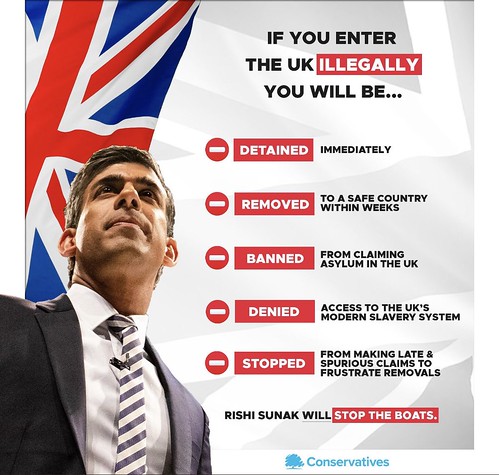Tories split over small boats as Robert Jenrick told to ‘stick to day job’ for saying UK could quit ECHR
ECHR #ECHR

Conservative infighting threatened to overshadow the Government’s asylum policy week after the Immigration Minister was told to “stick to the day job” for suggesting the UK could quit Europe’s human rights framework.
Senior Tory Sir Bob Neill told i minister Robert Jenrick was departing from Government policy by suggesting Britain could leave the European Convention on Human Rights (ECHR) to “stop the boats” crossing the Channel while an ex-minister said such a move would be “cheap and mean”.
Meanwhile, Labour peer and former child refugee from the Holocaust Lord Dubbs told i leaving the ECHR would be a “complete disaster”.
i understands Mr Jenrick’s comments on the ECHR are not being seen within the Government as a departure from collective policy but a signpost to his views on the next Tory manifesto potentially committing to quit the convention, a live debate in the party right now.
But they came shortly after the Government issued a statement to the BBC stating that it had been “clear that it will abide by its international treaty obligations” and would be “remaining party to the ECHR”.
Sir Bob, who chairs the Commons Justice Committee told i: “It’s not Government policy, it never has been.
“Ministers should stick to the day job and not speculate about what isn’t Government policy.”
He added that leaving would be “a completely foolish decision going against all history of the Conservative Party” and “would be a complete overreaction”.
It would leave the UK alone in Europe with Russia and Belarus while being incompatible with the Good Friday Agreement for peace in Northern Ireland, Sir Bob.
Another Tory MP and former minister on the right of the party added: “I think it a bad idea to leave ECHR. It makes us look cheap and mean. Not very Global Britain.”
Lord Dubs added: “It would be a sign the Government is not interested in human rights, a sign they would resort to any methods, including breaking our international agreements.”
However, in a signal of the split in the party over ECHR membership, Red Wall Tory Jonathan Gullis told i he was “pleased to see the Immigration Minister confirm that he, the Home Secretary and the Prime Minister are willing to do whatever it takes to stop the boats”.
The former minister went on: “I hope that if the ECHR meddle any further in trying to prevent us from stopping the boats by getting flights to Rwanda we ignore it and then we put an offer to the people at the next general election to leave the ECHR.”
It came after Mr Jenrick was asked whether the UK could leave the ECHR to grip the Chanel crisis.
He replied on Times Radio: “We will do whatever is required, take whatever necessary action is needed.”
Law Society of England and Wales president Lubna Shuja said: “This would be using a sledgehammer to crack a nut, when the Government already has a perfectly good nutcracker it can use.”
She said if the Government wants to address problems in the asylum system it could work to bring down the case backlog and address issues with the Illegal Migration Act rather than “leaving an extremely successful international agreement designed to protect individual rights and support political stability”.
Mr Jenrick was also forced to disagree with the party’s deputy chairman Lee Anderson’s assessment that the Government had “failed” to stop migrants coming to the UK by crossing the Channel in small boats.
Mr Anderson told GB News on Tuesday: “I’m not going to sit here and make excuses to anyone. This is out of control.
“We are in power at the moment, I’m the deputy chair of the Conservative Party. We are in Government and we have failed on this — there is no doubt about it.
“We have said we are going to fix it — it is a failure.”
Mr Jenrick told BBC Breakfast he disagreed with that part of the deputy chairman’s claims, arguing that “we’ve put in place a number of things in the course of the last few months which are already seeing dividends”.
He said the migrant crisis was an “incredibly complex international challenge” and proposed that the UK had the “most comprehensive plan of any European country to tackle this”.